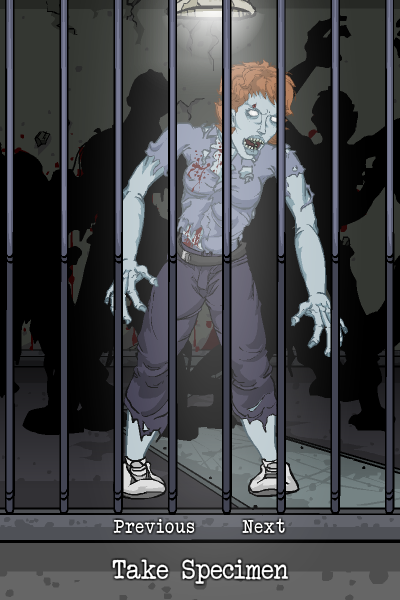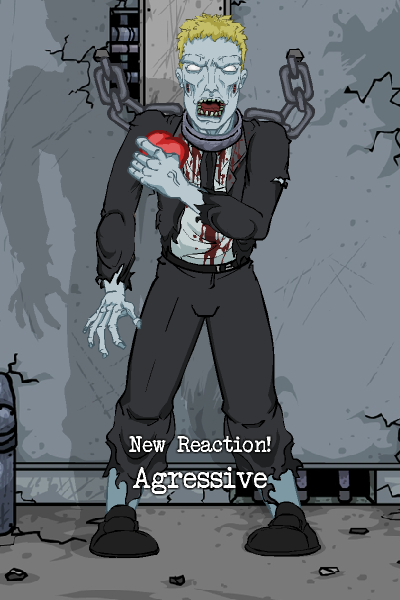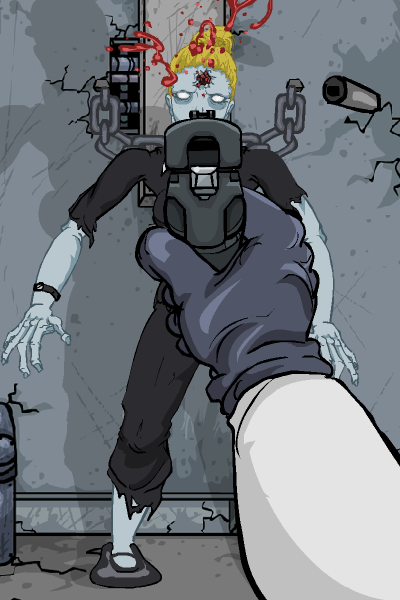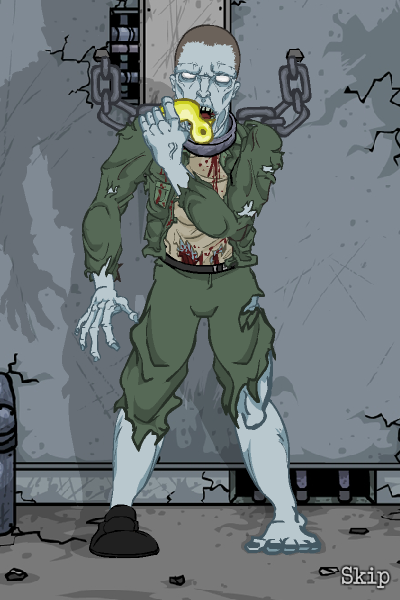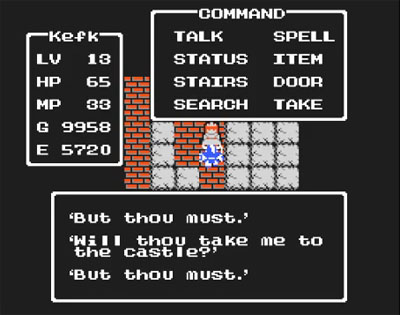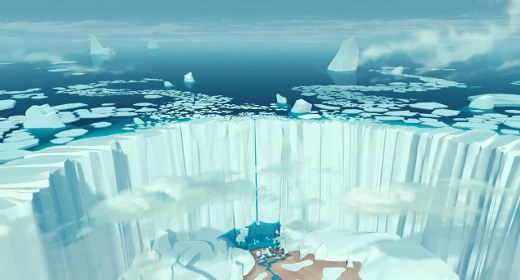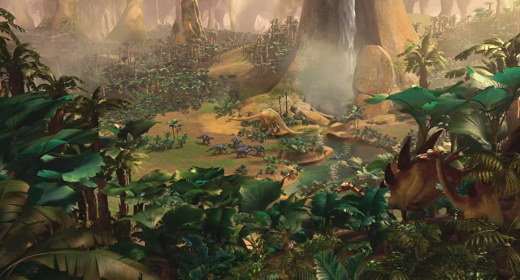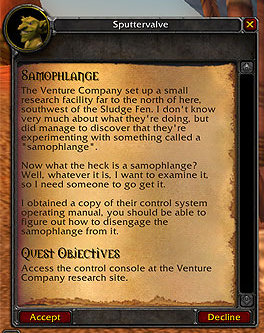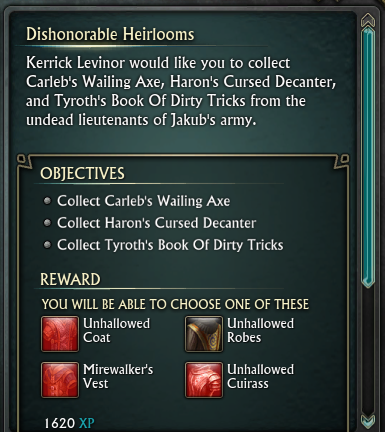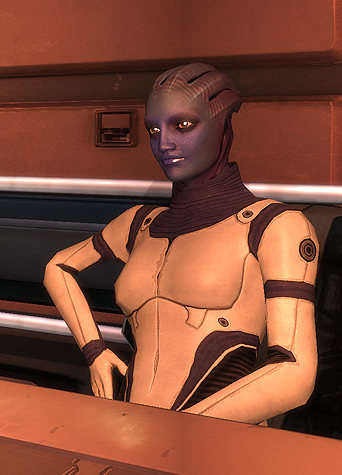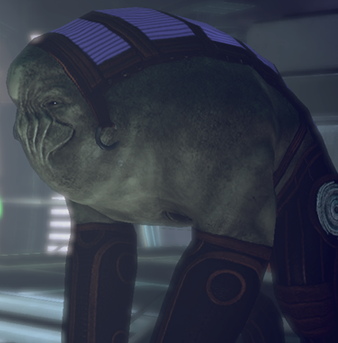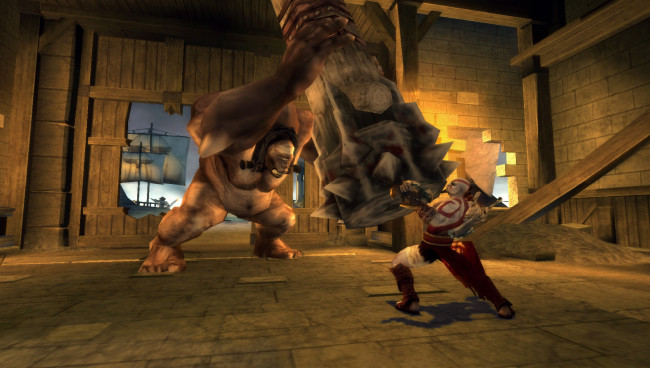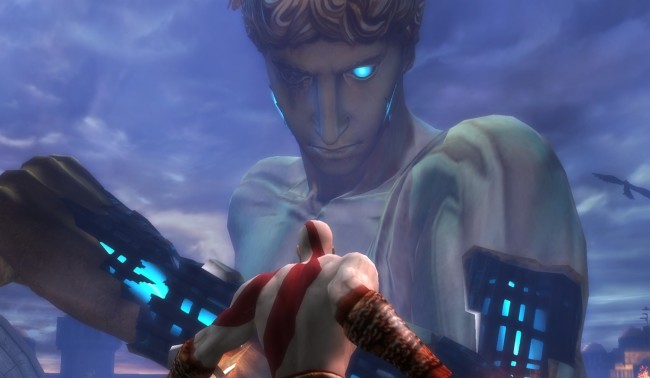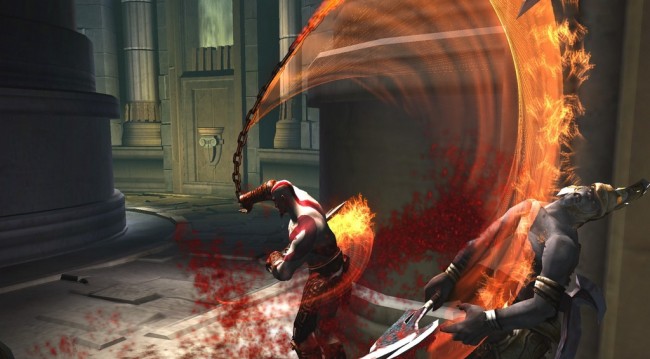Reflecting the World with the Game
2012, September 30th 10:35 AMThere's these two board games: Arkham Horror and Betrayal at House on the Hill. They're both horror games, in a sense. Arkham is Lovecraftian horror, Betrayal is horror-movie style. I've played a lot of both of them, and they both do a great job of atmosphere – but while a good deal of this atmosphere is conveyed through writing, some of it is conveyed through a far more important and far more subtle manner: the very rules that the game runs on.
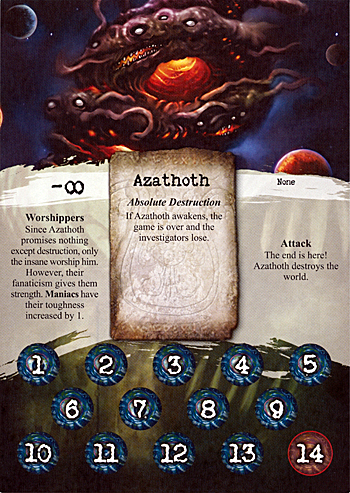
A theme of Lovecraftian horror is that, fundamentally, the world isn't an evil place. Sure, there are evils in the world – a whole shitload of them, actually – but until someone has actually been influenced by an Elder God, they're probably a good person. Almost all the evils in Arkham Horror are explicitly set apart as something unworldly: an invader from another plane of existence or a minion of that invader.
Betrayal is the exact opposite. Betrayal takes place inside a haunted house, and no doubt about it, the house hates you. The only things in this world that are on your side are your friends, and even one of those is going to betray you. The world of Betrayal is explicitly malicious and is constantly out for your blood.
Each game manages to demonstrate this through game mechanics.
In Arkham, the world's alliance with you is reflected in several ways. The game is cooperative, and almost all conflicts are phrased as "player vs. monster". When a tie happens, the player will generally win that tie. Second, situations where a value needs to be rounded are generally rounded in the player's favor. Finally, random events – the thing you spend a good deal of the game doing – are generally good things, giving you money, clues, items, or other minor bonuses.
Betrayal, despite also being mostly cooperative player-vs-monster, works quite differently. Ties are generally considered losses. Rounding is always against you. And random events, while sometimes good, tend to be harmful, gradually stripping away your stats or giving major penalties – the game is a race against your own inevitable death at the hands of the House.
I've always liked this method of creating atmosphere, but surprisingly few games do it. Most games either have very little connection between the mechanics and the environment, or the two are so deeply intertwined that there's nothing subtle about it. Not, by the way, that either of these things are bad – I'm not suggesting that Bejeweled needs to weave plot threads into its game mechanics somehow, nor that Braid was worse off by presenting a highly unified front to the player – but subtle atmosphere is an important part of a designer's toolkit, and it's something that board game designers have tackled with great success.
Luckily, it's not completely unheard of in the game world, so I can give a few examples.
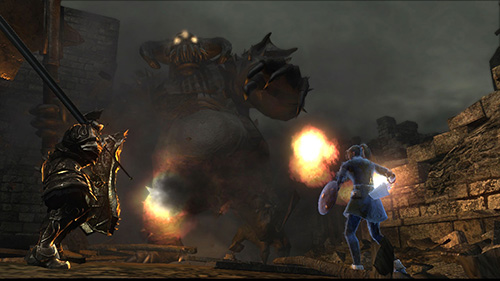
Demon's Souls is a hardcore dungeon crawler released a few years back. There has since been a spiritual successor, Dark Souls, that I've heard is quite good, but I haven't yet played it so I'll be talking about Demon's Souls.
In Demon's Souls, the world is out to kill you. Violently, rapidly, and efficiently. When it does – and it will, frequently – you lose all your hard-earned money. (Represented, in this game, by souls.) You're sent back to the beginning of the level, and the levels are quite long. Worse, the game doesn't get easier on the second try – no, now you're considered a ghost, and you have half as much life. And if you die more, the enemies get harder. That's right: Losing makes the game harder. This isn't a game where you get to keep making gradual progress despite dying, this is a game where dying makes anti-progress.
You know how many games have "town", or a "trade hub", or some other location that you can go in order to buy and sell stuff and stock up for your next run? Demon's Souls has that. And if you go the wrong way, you can die in town. And come back as a ghost, with half health. And the enemies got harder. And you lost all your souls. From dying in the safest part in the game. Good fuckin' job, man.
All of these mechanics fit the game style perfectly. The world of Demon's Souls is brutal – the backstory is about a war that has, in all practicality, already been lost, and the game reflects that. But importantly, none of the mechanics are unfair. The game never randomly kills you. It kills you because you screwed up, and then it kills you again in the exact same spot because you screwed up in the exact same way in that exact same spot. The lack of randomness is reflected in the game's storyline – the Bad Things didn't form out of nothing, they didn't just show up one day and decide to start fucking up the kingdom. They showed up because the king did something very, very bad, and now you get to suffer for it.
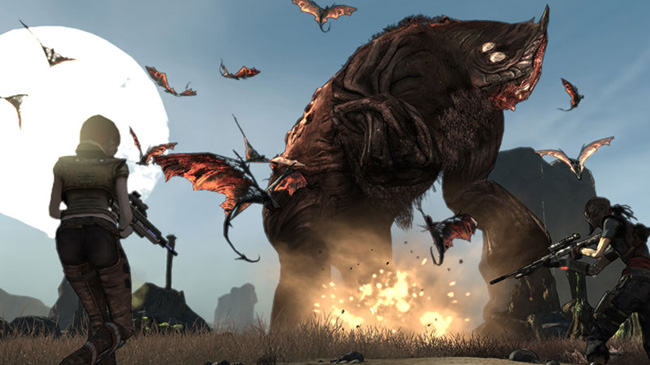
Borderlands, in many ways, is the exact opposite. Sure, the Borderlands game mechanics are also out to kill you, no arguments, but they'll give you every possible opportunity to survive while doing so. Running away is effective. Many characters have survival skills. "Dying" results in a period of time when you're lying on the ground wounded, but can still shoot things, and if you kill an enemy, you'll be instantly revived. And even if all that fails, you'll find yourself resurrected nearby with no loss besides a little bit of money. Not much money. Just a little. Plus you get some free ammo, just in case you ran out. And all the bad guys you killed? Still dead. Having trouble with a boss? Just keep throwing yourself at it, it'll go down eventually. Killing enemies is often rewarded by random guns appearing out of thin air, ammunition and health absolutely litters the game stashed away in chests, boxes, and even mounds of dirt, and the general philosophy if you're about to run out of something is to simply not worry – more will be along shortly.
On first inspection, the world of Borderlands seems like a grim brutal struggle for survival, but if you look a bit deeper it's a cartoony jokey "struggle". Sure, you slaughter nameless mooks by the thousand, but anyone with an actual name is guaranteed to survive until their plotline is resolved. Betrayal is rare and generally strongly telegraphed, wealth and riches seem to simply fall out of the sky for people to collect, and even the craziest nutcases find a successful niche to survive in.
(In the Borderlands world, even the average character is more than a little nuts. The craziest ones are truly out there.)
The interesting part about Borderlands is that the plot, originally, was quite different. Borderlands was developed as a gritty scifi roleplaying shooter, full of all the science fiction paraphernalia that we've grown to love from games like Mass Effect. But many of final non-gritty game mechanics were already in place. You'd shoot a horrible monster in the face, a gun would pop out. You'd walk around the world and find chests of ammo just sitting there. The game world and the game mechanics were in conflict – the mechanics kept saying "hey, look how ridiculous this all is, look how many guns you have, it's so many guns", and the plot kept insisting that this was a serious game with a serious plotline meant to be taken very seriously.
Compare the original trailer:
With the release trailer:
And then compare that with the Borderlands 2 trailer, which continues the path taken by the art revamp:
To wrap this all up:
Game developers have a tendency to consider the game mechanics and the setting to be two different things. In reality, they aren't – they're two parts of the same game, and at the very least they need to coexist peacefully. Ideally, they should riff off each other: both the game mechanics and the theme should be based around the same atmosphere. People will accept a brutally hardcore game if the setting feels appropriate, and people will accept a massively exaggerated game if the setting feels appropriate, but with an inappropriate combination, the game will feel jarring and out-of-place.

